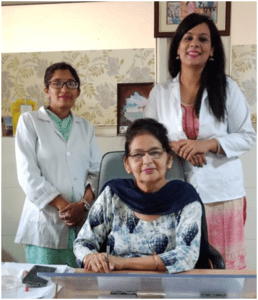- By Monika Kundu Srivastava (Twitter handle: @monikaksrivast1)
New Delhi, October 3 : Exposure to cadmium is making typhoid-causing bacteria,Salmonella, stronger and difficult-to-treat with conventional antibiotics, a new study has suggested.
Researchers have identified exposure to cadmium as a reason for Salmonella becoming resistant to antibiotics and have deciphered how cadmium affects the bacteria.Results of the study, published in Scientific Reports, indicate that antibiotics that could treat a severe infection are becoming less effective and those which could only treat mild infections are becoming ineffective.
Salmonella is found in sewage and is exposed to heavy metals discharged from household and industrial waste.In order to survive, the bacteria have undergone various changes at the cell level.
Conventional antibiotics were designed to act on certain components of the bacteria. With the bacteria changing in various ways, these antibiotics are becoming ineffective and slowly useless. Some antibiotics are unable to enter the bacteria because of a thicker protective layer, while others are unable to bind to the target protein within the bacteria as the protein itself has changed or has been taken up by cadmium readily because it ‘looks like’ calcium and zinc (which are needed by bacterial cells for various functions) and cannot be dislodged easily or the bacterial cells have become stronger due to increase of particles that protect them from dying.

Typhoid spreads through contaminated food and water. If not treated properly at the right stage the disease can even prove fatal. “With the knowledge of exactly how cadmium changes Salmonella, it would be easy to find alternative methods to counteract the action or even open up potential to come up with new alternatives taking into account the modified Salmonella attributes,” said Dr. Praveen Rishi from the Department of Microbiology, Panjab University, who led the study. The research team included Ujjwal Jit Kaur and Simran Preet. (India Science Wire)

